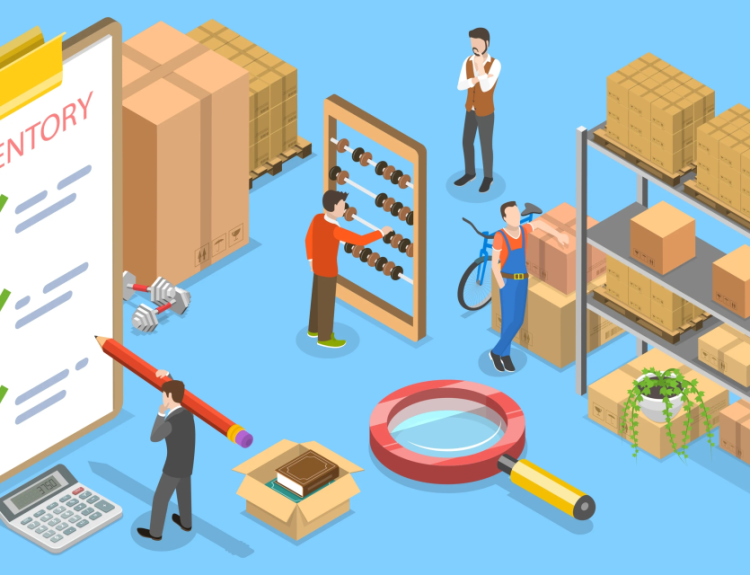n today’s manufacturing industry, efficiency is key to staying competitive. One way factories can boost their productivity and streamline operations is by implementing workflow automation. This technology automates repetitive tasks, reduces manual errors, and frees up time for more important work. Groyyo, a leader in B2B manufacturing and supply chain management, is helping factories take advantage of workflow automation to improve their efficiency and save valuable time.
Here’s a closer look at how Groyyo’s workflow automation solutions are transforming factories and why it’s essential for modern manufacturing.
1. Saving Time with Automated Processes
One of the biggest benefits of workflow automation is that it saves time. In traditional factories, many tasks—such as tracking orders, updating inventory, and managing production schedules—are done manually. These tasks can be time-consuming and prone to delays.
With Groyyo’s workflow automation, these repetitive processes are automated, allowing tasks to be completed faster and with less manual intervention. For example, production schedules can be automatically updated based on real-time data, and inventory levels can be adjusted without the need for human input. This means factories can run more smoothly, and workers can focus on higher-value tasks that require critical thinking.
By automating time-consuming processes, Groyyo enables factories to optimize their operations and increase productivity.
2. Reducing Errors in Daily Operations
Manual processes in manufacturing often lead to human errors, which can be costly and disrupt production. Whether it’s incorrect data entry, missing paperwork, or miscommunication between teams, these errors can slow down operations and impact a factory’s bottom line.
Groyyo’s workflow automation helps eliminate these errors by automating data entry, task assignments, and communications between teams. For example, once a production order is placed, the system automatically assigns tasks, updates schedules, and tracks progress in real time. This reduces the risk of mistakes and ensures that everyone has accurate, up-to-date information.
By reducing errors, Groyyo helps factories improve their overall efficiency, lower costs, and maintain a high level of quality in their operations.
3. Improving Communication and Collaboration
Good communication is crucial for any factory to operate smoothly. In many cases, teams struggle to stay updated on production progress, material availability, or order changes, leading to delays or confusion.
With Groyyo’s workflow automation, communication across teams becomes seamless. Automated notifications are sent to the right team members whenever there are updates or changes in the production process. This ensures that everyone stays informed and tasks are completed on time. Whether it’s an update on order status, a machine needing maintenance, or a material shortage, Groyyo ensures that the information reaches the right people instantly.
This level of automation helps teams collaborate more effectively and ensures that production flows smoothly without unnecessary delays.
4. Better Resource Management
Managing resources—whether it’s materials, labor, or machinery—is one of the biggest challenges in manufacturing. Poor resource management can lead to delays, increased costs, and inefficiencies.
Groyyo’s automation platform makes it easier for factories to manage their resources effectively. With real-time data and automated scheduling, factories can ensure they have the right materials at the right time and that machines and labor are utilized efficiently. For example, Groyyo can automatically adjust production schedules based on material availability or machine capacity, reducing downtime and ensuring that resources are not wasted.
By improving resource management, factories can produce more with less, leading to higher profitability and smoother operations.
5. Streamlining the Entire Production Process
The ultimate goal of workflow automation is to streamline the entire production process, from order placement to product delivery. Groyyo’s workflow automation system ensures that every step of the process is well-organized and efficient. Orders are tracked automatically, production schedules are updated in real-time, and materials are allocated as needed.
This seamless integration allows factories to reduce bottlenecks, speed up production, and meet customer demands on time. With Groyyo’s system in place, manufacturers can maintain a high level of operational efficiency while reducing the need for constant manual oversight.
6. Scalability for Growing Businesses
As factories grow, managing operations becomes even more complex. Manual processes may not be able to keep up with increased production demands, leading to inefficiencies and missed opportunities.
Groyyo’s workflow automation is designed to scale with the growth of the business. Whether a factory is expanding production or entering new markets, Groyyo’s platform can easily handle increased workloads without sacrificing efficiency. This scalability ensures that as the business grows, operations remain streamlined and effective.
Conclusion: The Groyyo Advantage in Workflow Automation
In the competitive world of manufacturing, time and accuracy are everything. Groyyo’s workflow automation offers factories a way to save time, reduce errors, and improve operational efficiency. By automating repetitive tasks, streamlining communication, and improving resource management, Groyyo is helping manufacturers stay ahead of the competition and meet the growing demands of the industry.
With Groyyo’s advanced automation solutions, factories can focus on what they do best—producing high-quality products efficiently, while reducing costs and increasing profitability.






